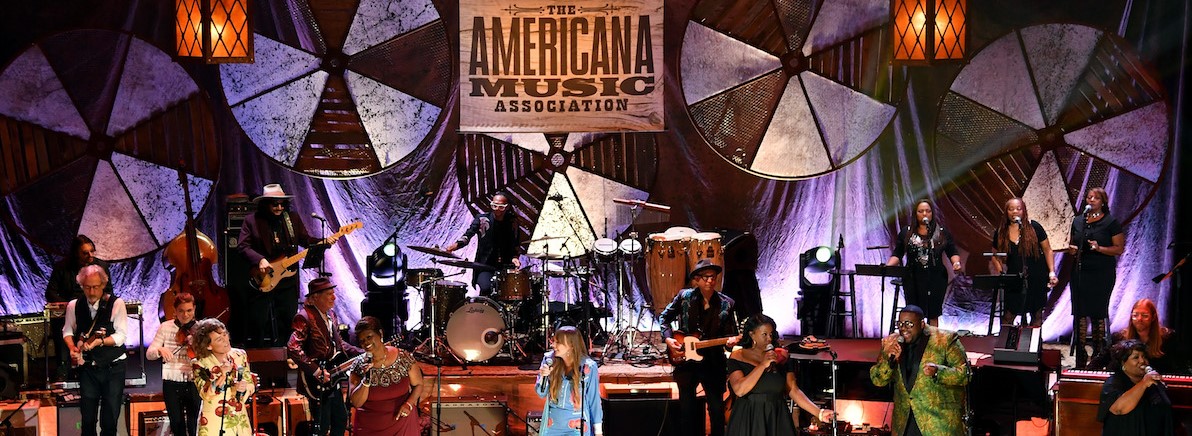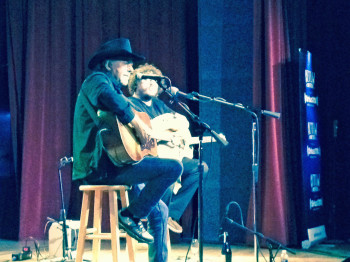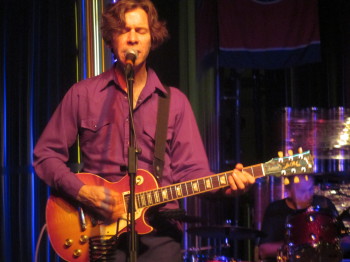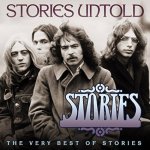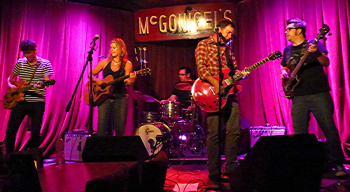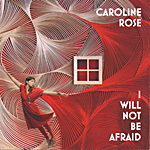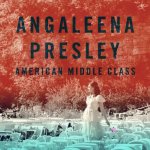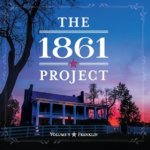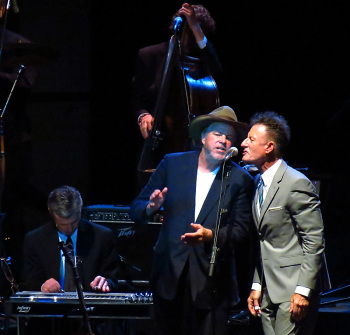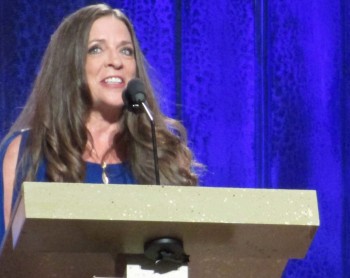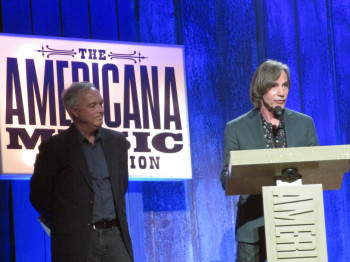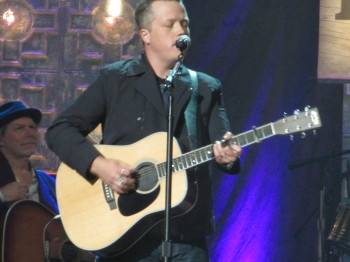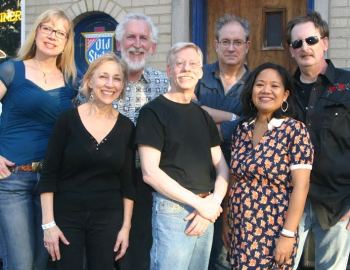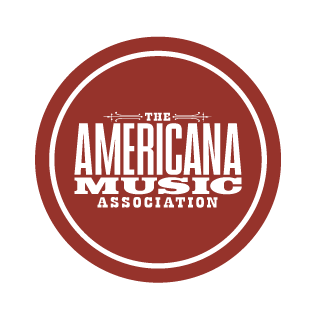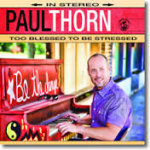By Terry Roland
On Saturday, September 5, Hotel Cafe in Los Angeles was host to an album release party for the new multi-talented Americana trio, Calico the band.
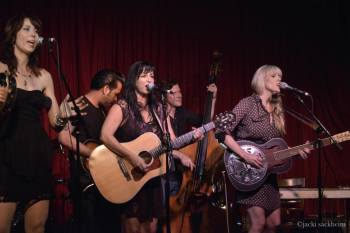
Calico
They were joined by up and coming Americana singer-songwriter, Rod Melancon and country roots solo artist Shooter Jennings, both based in L.A. The showcase was for the band’s family of supporters with their debut album, Rancho California released on their own California Country Music label.
It was a night that called to mind L.A.’s storied past when clubs like The Palomino hosted the best in country music. Each act reveled in its own glorious full-tilt rough and ready performance chops delivering high octane sets with passion. There was a strong sense of breaking out of the mold of today’s often stilted and boring mainstream country into broader and more creative sonic landscapes.

Rod Melancon
The show opener, Rod Melancon, a Louisiana to California transplant, came to Hollywood five years ago on the trail of an acting career when he took a permanent curve into L.A.’s Americana singer-songwriting scene. With two fine albums under his belt, he has evolved into an artist who can take the stage, deliver songs and perform as though James Dean took a detour and landed somewhere between the hometowns of a Bruce Springsteen and Merle Haggard.
His set found him confidently easing into his stage persona like a pair of well-worn jeans. He was in strong voice, fronting a band of skilled musicans including Ben Redell, Adam Zimmon, Jim Doyle and Lee Pardini. While he demonstrated his own unique style of storytelling on the Springsteen-like stripped down songs “Duck Festival Queen,” and “Curve Lounge,” it was when he and the band called up the sultry12-bar blues funk of “Marcella” and “Wanna Go For A Ride,” that allowed him to sink his raunch & roll teeth on stage coming on like an anti-Elvis rebel.

Shooter Jennings
Shooter Jennings, the 35-year-old son of Waylon Jennings and Jesse Colter, closed out the evening witha blistering interpretation of Dylan’s “Isis.” With Calico’s Aubrey Richmond on violin, he ressurected the haunting core of the song branding it with his own second-generation outlaw madness successfully walking the line between country soul and rock and roll sensibility.
His set included his familiar tribute to mentor and country legend, George Jones on “Don’t Wait Up(I’m Playing Possum).” Jennings remains as much an outlaw as his pedigree calls for on a sarcastic shout-out to new country stars on “Outlaw You” with lines like “Hey pretty boy in the cowboy hat/you couldn’t hit country with a baseball bat.”
His long hair swaying to the beat of the drum and a lonesome, ornery and mean attitude of his own, Jennings clearly revels in carrying on the original rebel legacy of his father and friends of past generations. He does so with originality and a passion that’s a joy to behold for those of us who recall his father’s famous stage presence.
But the night clearly belonged to Calico, the band who came on between Melancon and Jennings’s set. Fronted by three musically distinctive songwriters and instrumentalists, Kirsten Proffit, Manda Mosher and Aubrey Richmond, their debut album, Rancho California, offers a solidly accessible, well-crafted collection of songs centered around the themes of the Pacific West in ways similar to The Flying Burrito Brothers of years gone by.
A triple threat within their own circle of individualized triple threats of songwriting, instrumental and vocal talent, they add a layer of the essence of the harmonic Laurel Canyon sound of the ’60s and ’70s that once fostered Crosby, Stills & Nash and the Mamas and Papas to a solidly inventive country-rock sound.
Opening with “Never Really Gone,” a somber homage to mentors who have gone beyond the vale, they filled the venue with clear-as-a-mountain stream vocal harmonies. But the evening was not to be about musical sobriety, as they launched into songs like “High Road,” and the whiskey-soaked upbeat song of California relationship woe, “San Andreas Shake.”
“Runaway Cowgirl,” and “Fool’s Gold” carried echoes of the great country music renaissance of the ’80s when Desert Rose Band and Rosanne Cash ruled the country airwaves and charts. All three artists offered their own distinctive craft and appeal with Kirsten Proffit giving a solid center to Manda Mosher’s multi-instrumentalist moves, swaying in Tom Petty-like fashion, on her left and Aubrey Richmond’s sexy fiddle and dance on her right. It was a visual as well as a sonic treat.
Like any good party, the girls invited many of their best friends to perform including Mark Christian of Merle Jagger, Ted Russell Kamp, Carl Byron, Jonathan Tyler and Scott Kinnebrew of Truth & Salvage.
hile Los Angeles still lags behind in recognition for their posse of excellent roots-based Americana and alternative country artists, last week’s release party brought together three of today’s finest ambassadors of a regional brand whose influence runs deep in today’s real country music.
(All photos courtesy Jacki Sackheim.)
